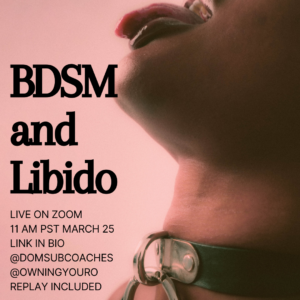
Dopamine is the "repeat" neurotransmitter not the pleasure neurotransmitter. This neurotransmitter plays a role in the reward system of the brain, which helps us to feel motivated to repeat behaviors. Dopamine is released whenever you experience uncertainty.1
Lots of activities have uncertain outcomes and thus produce dopamine. For example, when you gamble or scroll through social media, there is a high level of uncertainty: will you win or lose? what's the next video going to be? how many likes did I get? This causes a release of dopamine which provides the motivation to repeat the activities and what makes activities such as these so addictive.
Dopamine does much more than have you repeat behaviors (aka reward system) it is the precursor to many functions of the body which I discuss in "5 Symptoms of Low Dopamine You Need to Know About."
Stress has a significant impact on dopamine production. When you are experiencing acute trauma (meaning a single, stressful event), your body will have an increase in dopamine. This is a good thing. This dopamine boost sends signals to the different areas of our brain to help us focus on the stressor which allows us to respond quickly. Stress in itself is not a bad thing. Controlled stress such as cold therapy, hot therapy, and weight lifting all help us to increase our health and vitality by instantiating certain processes that only occur during stress.
The problem is when you experience chronic trauma or repeated stress. When you have repeated stressful events (and who doesn't these days), this kind of stress will have a negative impact on the way in which your brain produces dopamine.
If you've read some of my other blog posts that focus on dopamine such as "What is Dopamine? HINT: It's not actually the pleasure neurotransmitter" or "Are you addicted to your anxiety? The truth about Dopamine" then you already understand a bit about how stress affects dopamine by getting your body stuck in a low dopamine production -> increase cortisol production -> lower dopamine loop.
Your brain is an energy resource management center and will produce neurotransmitters in relation to the amount of energy you have and what needs to happen to keep you safe, reduce stress, and get into homeostasis (stable and balanced physiological processes). If you get good sleep, are hydrated, absorb the proper nutrition, get enough sunlight, and breathe correctly, then your brain will be able to allocate more energy to reduce your stress.
However, most of us are not getting optimal sleep, eating poorly or not exactly eating in a way that works best for our bodies, not getting enough exercise, etc. etc. Add on some digestive issues or low dopamine production (hello fellow ADHD peeps), then you're most likely not absorbing the nutrients needed even if you are eating optimally. All of these factors affect our hormone production. In particular, cortisol!
Cortisol is the main hormone that is released when you are stressed. It is the hormone responsible for:
All of these functions are important if you are getting chased by a lion. Want to know what ISN'T important if you are being chased by a lion? Thinking about or wanting sex.
The organs that produce cortisol are the same organs that produce the necessary amounts of the "sex" hormones (progesterone, testosterone, estrogen) needed for living. While these hormones are produced in the sex organs, the sex organs only make the amounts necessary for human bonding activities that occur when your are not getting chased by a lion.
Your body relies on the other areas (adrenals, liver, brain, heart, and even your skin) to make these hormones in quantities that are necessary for life but if you are consistently stressed, the body will use the reserves from the sex organs. If this happens periodically, it's not a big deal. Your body is more than able to make up for occasional stressful events.
But since most of us are living stressful lives, these 3 hormone levels are drastically impacted and our desire to engage in human bonding activities, such as sex, decreases. Having low (or in some cases no) libido is a sign that these hormones are not at optimal levels. And that has major health implications, not just partaking in sexual activities, fertility, and sexual health matters.
If your adrenals are spending too much time making cortisol then they are not making progesterone. Progesterone is necessary for creating sperm, the thickening of the uterine lining during menstruation, testosterone biosynthesis, protection against cervical, ovarian, and uterine disorders and cancers. And maybe even more importantly, progesterone levels are a key indicator in your life expectancy. The more you are exposed to progesterone (male or female), the longer you will live, the less wrinkles you will have, and the healthier you will be.
If you have low libido or you have noticed your desire to want to have sex has decreased (if you don't want it on average about 3 times a week or more then there might be a problem), I highly suggest engaging in a self-sensuality practice and work on releasing stored trauma in your body. These two practices help you to reduce and manage stress and help your body repair itself from the impacts that trauma and stored stress have had on your body.
Want to learn about BDSM & libido? Emily Anne of the BDSM Coaches is hosting her Kinky Ted Talks: BDSM & Libido on Saturday, March 25, 2023 at 11:00 am Pacific. Guess who's joining in the discussion? Yep... Me!
Class covers:

References: